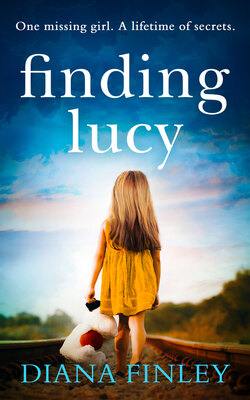Читать книгу Finding Lucy - Diana Finley - Страница 9
Chapter Three
ОглавлениеI had wanted a child of my own for as many years as I could remember. I might even admit to having felt a desperate longing for a child. I frequently recall Mother’s words to me during the last days of her life.
‘Don’t live alone, Alison,’ she had said. ‘It’s not good for you, dear. I do so wish for you to have a child – a child to love, and to love you. I won’t be a grandmother, of course – it’s too late for that – but if only I could know that you will have the joy of being a mother, as I did with you; that would be such a comfort for me.’
‘You’re right, Mother,’ I had told her soothingly, Mother’s hand in mine as frail and fleshless as a chicken’s claw.
‘Please don’t worry – I want to have a child. I will have a child, I promise.’
Perhaps it was a rash promise, but I had genuinely meant those words. Three days later Mother was dead. I had underestimated the impact her loss would have on me. She had been right; I needed someone to love, and to love me. I needed a child. That need grew in me until it was all-consuming.
* * *
Of course, I had tried all avenues: conventional means some might say. But none felt truly right for me. Why not give birth to a child of your own, some might ask. The fundamental barrier is that first a man is required. My attitude to men had been permanently coloured by the event at university some years before. I didn’t dislike men, but neither did I trust them, and they had never played a significant role in my life. I could not envisage the constant presence of a man in my home, in my life. Above all, I regarded acts of physical intimacy with a man with the utmost revulsion.
Some women might even pursue what I understood were referred to as “one-night stands” – a revolting term – but this was not a path I could ever have contemplated. Even thinking about it caused me to tremble and feel quite nauseous. Thus I had dispensed with the idea of “natural” means of having a child.
Next, I considered the possibility of artificial insemination. However, I could never have submitted myself to such a humiliating procedure – little better than the means by which a prize cow might be used for breeding.
Having dismissed all these avenues, I looked into legal adoption. One would imagine that a respectable woman, still in her thirties at that time, and willing to offer a home to an unwanted waif, would be welcomed with open arms. Not so! After weeks of visits from social workers and their ceaseless interviews and questionnaires, I had been told that I was not considered suitable to adopt a child. Not suitable! “The team” had decided – “regretfully” – that I was not suited to bringing up a child, especially a young and vulnerable child, they said. Words like “judgemental”, “lacking in empathy”, and “rigid personality” had been bandied about; meaningless psycho-babble straight out of some left-wing social work textbook, no doubt. And thus this questionable group of people had passed their own judgement on me.
There had been no means of appeal. As will be appreciated by anyone with a scrap of insight, I had been left with no choice but to take the matter into my own hands.
